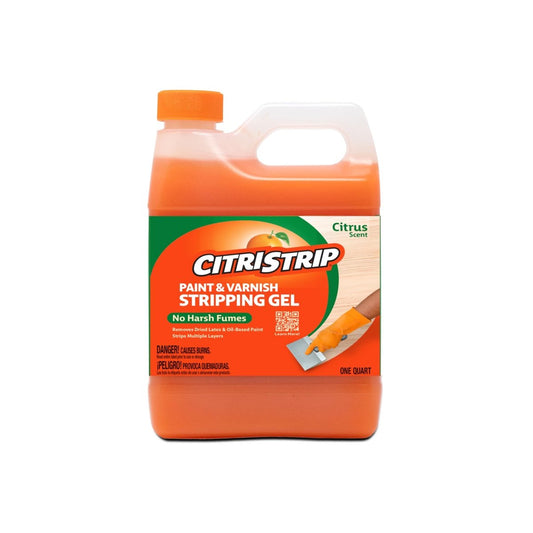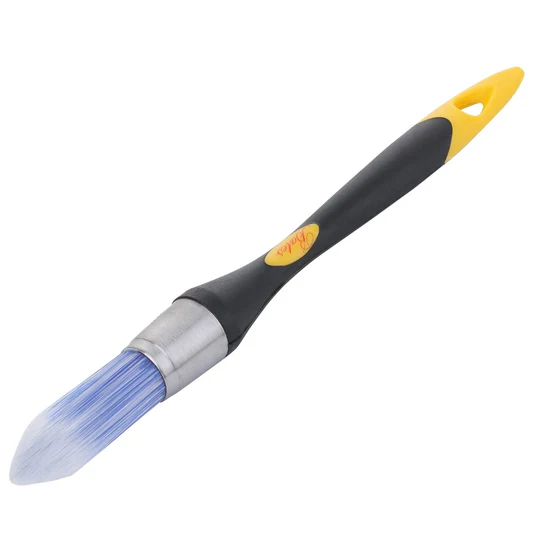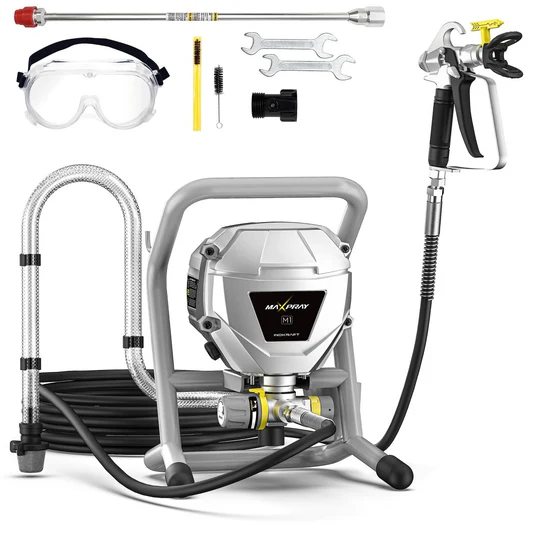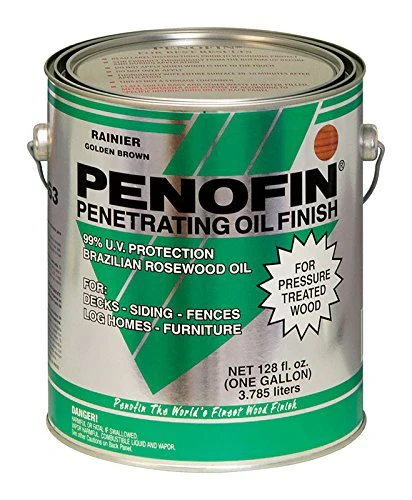Polyurethane is a popular and versatile material that can be used to protect and enhance surfaces such as wood, metal, and plastic. However, applying polyurethane can be a tricky task, and choosing the right brush is crucial to achieving a smooth and even finish.
When it comes to selecting the best brush for polyurethane, there are a few key factors to consider. First, the bristles should be made of a material that is compatible with polyurethane, such as natural or synthetic bristle brushes. Second, the size and shape of the brush should be appropriate for the surface being coated. Finally, the quality of the brush will affect the overall finish, so investing in a high-quality brush can be worth the extra cost.
After researching and testing various brushes, we have identified the top options for achieving a flawless polyurethane finish. Whether you're a seasoned DIYer or a professional contractor, these brushes will help you achieve a professional-quality finish with ease.
Best Brushes for Polyurethane
We understand that choosing the right brush for your polyurethane project can be overwhelming. With so many options available, it can be difficult to determine which brush will provide the best results. That's why we've compiled a list of the best brushes for polyurethane to help make your decision easier. Our team has extensively researched and tested various brushes to ensure that we only recommend the highest quality products. Below, you'll find our top picks for the best brushes for polyurethane.
Minwax Polyurethane Brush

We highly recommend the Minwax Polyurethane Brush for anyone looking for a high-quality brush to apply polyurethane.
Pros
- The natural bristle design of the brush provides a smooth, glass-like finish.
- The bristles absorb and hold clear coatings well, making it perfect for use with Minwax Polyurethane.
- The brush is suitable for use with all sheens of polyurethane, making it versatile.
Cons
- The brush is not suitable for use with oil-based polyurethane.
- The brush is only 2 inches wide, which may not be ideal for larger projects.
- The brush may shed bristles during use if not properly cared for.
The Minwax Polyurethane Brush is a great choice for anyone looking to achieve a smooth and even finish when applying polyurethane. The natural bristle design of the brush allows for increased absorption and hold of clear coatings, resulting in a beautiful finish. Additionally, the brush is versatile and can be used with all sheens of polyurethane.
One downside of the Minwax Polyurethane Brush is that it is not suitable for use with oil-based polyurethane. Additionally, the brush is only 2 inches wide, which may not be ideal for larger projects. Finally, it is important to properly care for the brush to prevent shedding of bristles during use.
Overall, we highly recommend the Minwax Polyurethane Brush for anyone looking for a high-quality brush to apply polyurethane. It is a versatile and effective tool that will help you achieve a beautiful finish on your project.
Minwax Polycrylic Wood Stain Brush

If you're looking for a high-quality synthetic bristle brush for water-based stains and finishes, the Minwax Polycrylic Wood Stain Brush is definitely worth considering.
Pros
- Provides a smooth, even finish
- Soft application design
- Durable, natural hardwood handle
Cons
- Only for use with quart size cans
- May leave brush marks if not used properly
- Not suitable for oil-based stains and finishes
We recently used the Minwax Polycrylic Wood Stain Brush on a wood finishing project and were thoroughly impressed with the results. The synthetic bristles made of nylon and polyester provided an even application of the water-based stain, resulting in a smooth finish. The soft application design of the brush also helped to prevent drips and splatters.
The natural hardwood handle of the brush is durable and comfortable to hold, making it easy to maneuver and control. However, it should be noted that the brush is only suitable for use with quart size cans of water-based stains and finishes.
While the Minwax Polycrylic Wood Stain Brush is generally easy to use, it may leave brush marks if not used properly. It's important to apply the stain in the direction of the wood grain and to avoid overworking the brush.
Overall, we highly recommend the Minwax Polycrylic Wood Stain Brush for anyone looking for a high-quality brush for water-based stains and finishes. It's a durable and reliable tool that will help you achieve a smooth and even finish on your wood projects.
Purdy Ox-Hair Series Ox-O-Thin Flat Trim Paint Brush

We highly recommend the Purdy Ox-Hair Series Ox-O-Thin Flat Trim Paint Brush for anyone looking to apply polyurethane.
Pros
- The soft natural bristles provide a glass-like finish, making it perfect for projects that require an ultra-smooth, exquisite finish.
- The brush is designed to hold its shape and is best for use with oil-based paints, stains, clears, polyurethanes, and varnishes.
- The moisture-wicking alderwood handle is lightweight and durable, making it comfortable to use for extended periods.
Cons
- The brush may shed a few bristles during the first few uses.
- It is a bit pricey compared to other brushes on the market.
- The brush may not be suitable for water-based polyurethane applications.
We found that the Purdy Ox-Hair Series Ox-O-Thin Flat Trim Paint Brush is perfect for marine woodwork, furniture, and fine artistry. Its handcrafted design and use of high-quality materials make it a reliable and long-lasting tool.
The brush is easy to clean and can be used multiple times. However, it may shed a few bristles during the first few uses, which can be frustrating. Additionally, the brush is a bit pricey compared to other brushes on the market, but its quality and performance make it well worth the investment.
Overall, we highly recommend the Purdy Ox-Hair Series Ox-O-Thin Flat Trim Paint Brush for anyone looking to achieve a glass-like finish on their polyurethane projects.
Tru Lamb Lambskin Stain & Paint Brush

If you're looking for a high-quality brush for polyurethane, the Tru Lamb Lambskin Stain & Paint Brush is definitely worth considering.
Pros
- The 100% natural lambskin bristles provide a smooth and even application of polyurethane.
- The brush works great with all latex and oil-based paints, stains, and polyurethanes.
- The lambskin bristles are naturally shed-resistant and easy to clean.
Cons
- The brush may not be suitable for large projects due to its 2-inch size.
- The brush is relatively expensive compared to other brushes on the market.
- Some users may find the brush difficult to control due to the softness of the lambskin bristles.
We recently tried out the Tru Lamb Lambskin Stain & Paint Brush on a small woodworking project, and we were impressed with the results. The brush provided a smooth and even application of polyurethane, and the natural lambskin bristles were easy to clean and reusable.
One thing to keep in mind is that the brush is relatively small, so it may not be the best choice for large projects. However, if you're working on a small to medium-sized project, the Tru Lamb brush is definitely worth considering.
Overall, we would recommend the Tru Lamb Lambskin Stain & Paint Brush to anyone looking for a high-quality brush for polyurethane. While it may be a bit more expensive than other brushes on the market, the natural lambskin bristles and patented design make it a great investment for any DIY enthusiast or professional painter.
Wooster Brush 912-0052220020 Silver 5222-2 Tip Paintbrush

If you're looking for a brush to apply polyurethane, the Wooster Brush 912-0052220020 Silver 5222-2 Tip Paintbrush is worth considering.
Pros
- The chisel trim of the white and silver CT polyester bristles makes it easy to apply polyurethane without leaving brush marks.
- The soft formulation of the filament makes it easy to create feather strokes, which can help achieve a smooth finish.
- The stainless steel ferrule and hardwood handle make this brush durable and comfortable to use.
Cons
- Some users have reported that this brush sheds bristles, which can be frustrating when you're trying to achieve a smooth finish.
- This brush is on the thin side, which means it doesn't hold as much polyurethane as some other brushes.
- While this brush is suitable for applying enamels to metal, varnish or polyurethane on wood, and lighter or thinner water-based coatings, it may not be the best choice for thicker coatings.
We recently tried out the Wooster Brush 912-0052220020 Silver 5222-2 Tip Paintbrush when we were applying polyurethane to a wooden table. We were impressed with how easy it was to create a smooth finish without leaving brush marks. The chisel trim of the bristles helped us to apply the polyurethane evenly, and the soft formulation of the filament made it easy to create feather strokes.
The stainless steel ferrule and hardwood handle also made this brush comfortable to use. We didn't experience any hand fatigue, even after using the brush for an extended period of time. However, we did notice that this brush sheds bristles, which can be frustrating when you're trying to achieve a smooth finish.
Overall, we would recommend the Wooster Brush 912-0052220020 Silver 5222-2 Tip Paintbrush to anyone who is looking for a brush to apply polyurethane. While it may not be the best choice for thicker coatings, it's a great option for lighter or thinner coatings.
Buying Guide
When it comes to finding the best brush for polyurethane, there are a few key features to consider. Here are some factors to keep in mind when making your selection:
Bristle Type
The type of bristle on the brush can make a big difference in the application process. For polyurethane, we recommend using a brush with synthetic bristles, such as nylon or polyester. These types of bristles are durable and can handle the thicker consistency of polyurethane without becoming damaged or frayed.
Brush Size
The size of the brush you choose will depend on the size of the project you are working on. For larger projects, a wider brush will help you cover more surface area quickly. However, for smaller projects or detailed work, a smaller brush may be more appropriate. It's important to choose a brush that is comfortable to hold and easy to maneuver.
Brush Shape
The shape of the brush can also affect the application process. A flat brush is ideal for larger, flat surfaces, while an angled brush can help you get into tight corners and edges. A round brush can be useful for detailed work or for applying polyurethane to curved surfaces.
Quality
Investing in a high-quality brush can make a big difference in the final result of your project. Look for a brush with sturdy bristles that are firmly attached to the handle. A brush with a comfortable grip can also make the application process easier and more enjoyable.
By considering these factors, you can choose the best brush for your polyurethane project and achieve a beautiful, professional-looking finish.





